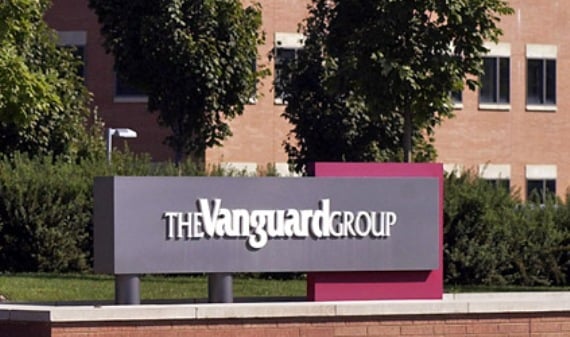A new front has opened in the fee war between exchange-traded-fund providers: the firms that supply underlying benchmark indexes for the funds.
In another effort to lower licensing fees,
The Vanguard Group Inc. said Tuesday it will drop MSCI Inc. as the index provider for 22 of its index and exchange-traded funds in favor of FTSE Group and The Center for Research in Securities Prices. A total of $537 billion in assets under management will be affected by the shift.
Among the funds changing benchmarks: The $57 billion Vanguard Emerging Markets ETF Ticker:(VWO) and the $23 billion Vanguard Total Stock Market ETF Ticker:(VTI).
“One of the trends we've seen is that index licensing fees have been taking up more and more of the expense ratio over time,” said Joel Dickson, an ETF strategist at Vanguard. “We thought it was valuable to be able to get better cost certainty and longer agreements. Over time, as assets grow, those savings can be passed on to investors.”
Mr. Dickson declined to disclose the exact change in fees or the length of the contracts.
“We are disappointed that Vanguard will no longer use our indexes as the basis for these exchange traded funds,” said Baer Pettit, head of MSCI's index business, in a statement. “The ETF market in North America is competitive and as it evolves, we will work with those ETF providers who seek to utilize independent, well-respected, and high-quality equity indices in their products."
Fees have come into focus lately as
BlackRock Inc., the largest provider of ETFs, and the
Charles Schwab Corp. announced recently that they would be cutting fees on their ETFs, largely to compete with Vanguard. Through the first nine months of the year, Vanguard, thanks largely to its focus on low costs, attracted nearly $1 of every $3 invested.
The changes in benchmarks, and the assumed subsequent lowering of fees, is not a direct response to the recent fee cuts by rivals, Mr. Dickson said.
“Vanguard's never been accused of moving on a dime,” he said. “We're constantly looking at the different factors that impact costs in a portfolio.”
The emerging-markets fund, along with six other international equity funds, will begin tracking FTSE Group indexes sometime in the early part of 2013. The total stock market fund, and with 16 other stock and balanced funds, will begin tracking indexes from CSRP, an academic and investment research firm associated with the University of Chicago.
Vanguard isn't publicizing the exact date of the changes to avoid anyone front-running the funds as they buy or sell securities to fit the new benchmarks.
The biggest change will be in the Vanguard Emerging-Markets ETF, which has a 15% weighting to Korea. FTSE, which will provide the new benchmark, considers Korea a developed market. MSCI categorizes Korea as an emerging market. That means that the ETF will be selling its Korea holdings over the next six months as it transitions. Brazil, Taiwan and South Africa are among the countries that will see bigger weightings.
The domestic-equity funds will have looser rules on when a company transitions between capitalization sizes.
Traditional small-cap indexes, for example, will drop a stock once it becomes too big and add it again if the market cap falls. Some have argued that this leads to unnecessary transaction costs and could lead to front-running.
To reduce those risks, companies can be in both the small- and midcap CSRP indexes if they're in the process of transitioning between the two.
Overall, Mr. Dickson doesn't believe the change will have a big impact on performance.
“Most broad-based international and equity indexes tend to move together,” he said.









